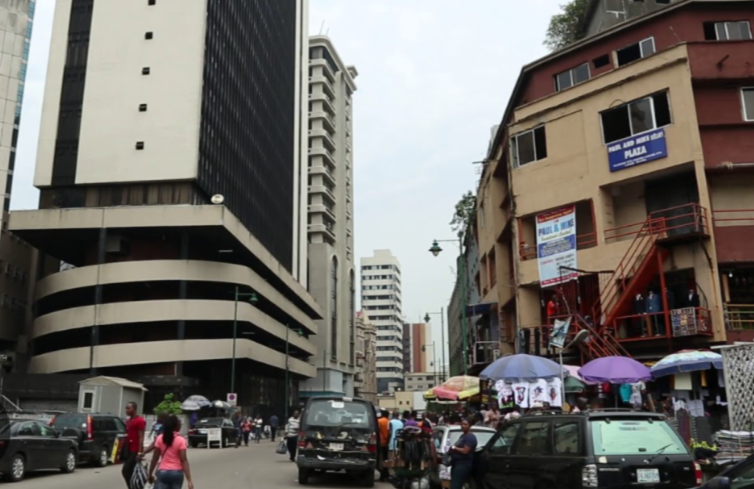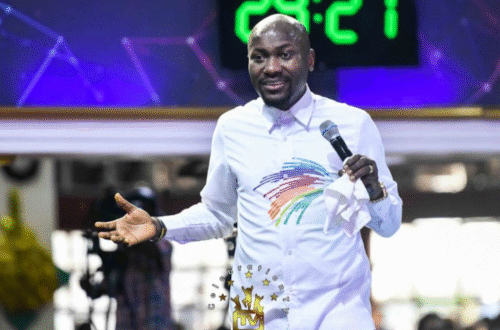
7 of Lagos’s Most Historic Streets And Their Stories

Lagos, one of Africa’s most vibrant and rapidly growing cities, is rich in history and culture, which is reflected in its streets.
Many of its roads are not just thoroughfares, but landmarks that tell the story of the city’s evolution.
Here are six of Lagos’s most historic streets and the fascinating stories they hold:
1. Broad street
- History: Broad Street is one of the oldest and most iconic streets in Lagos. Established during the colonial era, it was originally a commercial hub for British merchants and later became the heart of banking in Nigeria.
- Significance: Broad Street saw the rise of many of Nigeria’s first banks, and it remains one of the busiest streets in Lagos today. It represents the economic and colonial history of Lagos, serving as a space for both African and European traders.
2. Tinubu square (formerly Oja Tinubu)
- History: Named after Efunroye Tinubu, a powerful and influential 19th-century businesswoman and political figure, Tinubu Square was once the site of a major market.
- Significance: Tinubu Square became a center for commercial and political activities. It’s also a symbol of the resilience and power of Nigerian women during the 19th century, with Efunroye Tinubu playing a key role in local and national politics during British colonial rule.
3. Eko drive
- History: The term “Eko” is derived from the indigenous Yoruba language, meaning “war camp,” referring to the original settlement of the Lagos people before it became a major trading post for the Portuguese and later the British.
- Significance: Eko Drive is a historic and central avenue in Lagos that traces the transformation of Lagos from a small fishing village to a bustling commercial hub. The street represents Lagos’s identity as a crossroads of culture, commerce, and history.
4. Murtala Mohammed Way
- History: This road is named after General Murtala Mohammed, the military leader who served as Head of State of Nigeria from 1975 until his assassination in 1976. His government initiated significant reforms and set Nigeria on a path of economic and political restructuring.
- Significance: Murtala Mohammed Way symbolizes the era of military rule and the pivotal changes that reshaped Nigeria’s governance and economic systems during the 1970s. The street remains a busy part of Lagos, connecting several important areas of the city.
5. Ahmadu bello way
- History: Named after Sir Ahmadu Bello, the first premier of Northern Nigeria, Ahmadu Bello Way is one of the most important roads in Lagos.
- Significance: This street honors the legacy of a prominent Nigerian leader who played a key role in the country’s political development, particularly in shaping the relationship between the Northern and Southern regions of Nigeria during the country’s early independence years.
6. Onikan road
- History: Onikan is one of the oldest parts of Lagos, home to the first royal palace of the Oba of Lagos before the city expanded. Onikan Road remains a historical area, hosting important landmarks such as the National Museum Lagos and the Onikan Stadium.
- Significance: Onikan represents the historical transition of Lagos from a small settlement to a significant urban area, and the street remains a focal point for cultural heritage and history in the city. It was also once a site for early European trade and interaction with local Lagosians.
7. Lawrence road
- History: Lawrence Road is named after Sir John Lawrence, a colonial administrator during the British colonial period.
- Significance: This street was part of the commercial and residential developments that took place in Lagos during the 19th and 20th centuries, and it continues to serve as an important part of the city’s landscape. Lawrence Road is a reminder of Nigeria’s colonial past and the urbanization that occurred under British rule.
Each of these streets carries a deep narrative, reflecting the evolution of Lagos from a pre-colonial settlement to a bustling metropolis, and they remain critical to understanding the social, economic, and political development of Lagos and Nigeria as a whole.




